I’ve let the dust settle a bit before taking about 5, I don’t feel the need to be first, I wanted to give it time to sink in and give it a decent whirl. The announcement of ChatGPT-5 has seen polarising views, but I find myself oddly unmoved. While everyone else debates whether it will achieve AGI or merely perfect the art of writing corporate emails, I'm sitting here thinking ChatGPT-5 represents a clear choice by OpenAI, and frankly, it's not the direction I need my AI tools to go. Let me be clear: ChatGPT-5 will undoubtedly be impressive.
OpenAI has a track record of delivering incremental improvements that somehow feel revolutionary. But here's the thing, I don't need another monolithic model that tries to be everything to everyone. What I need is choice, flexibility, and the ability to match the right tool to the right job. The current trajectory of ChatGPT isn't just a product evolution, it's a philosophical shift towards treating users as passive consumers rather than active participants in their AI interactions.
The mainstream adoption of AI was always going to look like this. Simplification, streamlining, and the gradual removal of anything that might confuse someone's grandmother. I get it, I do, most people don't want to think about which AI variant might be better for creative writing versus code generation. They want to type a question and get an answer. ChatGPT-5 will excel at this, becoming the Toyota Camry of AI: reliable, comfortable, and utterly predictable.
But what about those of us who actually need options? The dirty secret nobody talks about is that different AI models have different personalities, strengths, and quirks. Some excel at creative tasks, others at analytical reasoning, and still others at code generation. Having access to multiple models isn't just a luxury, it's essential for serious work. Being locked into a single model, no matter how advanced, feels like being forced to eat at the same restaurant every day, no matter how good the food might be.
This is where simtheory.ai has completely changed my workflow, and no, I'm not being paid to say this. With 37 different models available in a single workspace, plus MCP servers and proper tooling, it's essentially what professional AI interaction should look like. I can switch between Claude for nuanced writing, use specialised models for coding tasks, leverage open source alternatives for specific research, and compare outputs across multiple models within the same conversation. This isn't just a nice feature, it's fundamental to serious AI work.
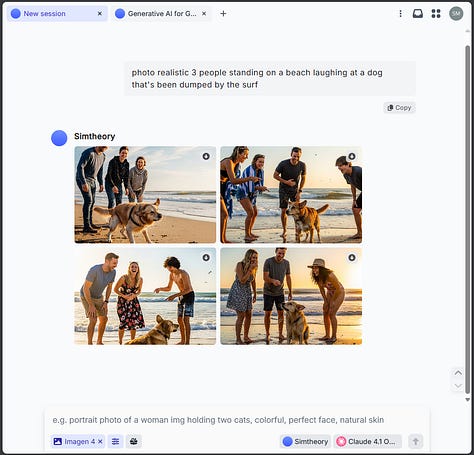
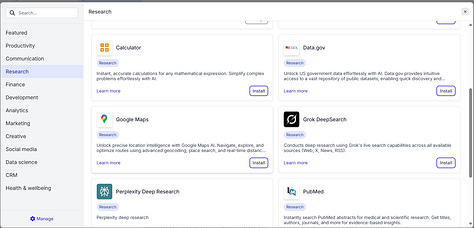
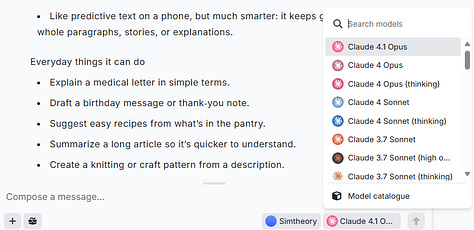
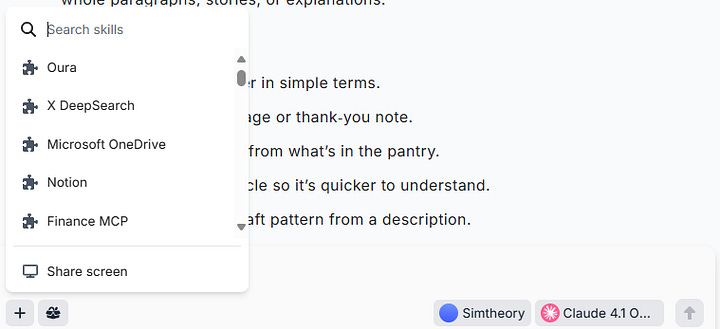
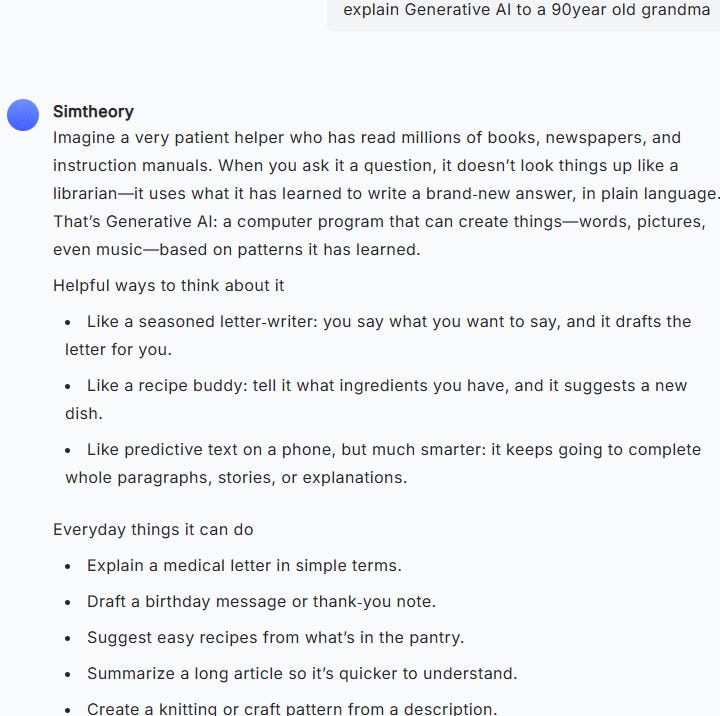
(ChatGPT-5 answer to “explain the internet to a 90year old grandma” sums up the new experience exactly: a bit meh.
Keep reading with a 7-day free trial
Subscribe to Everyday AI to keep reading this post and get 7 days of free access to the full post archives.




